📚 Thoughts on nostalgia, Just delete them, Hosting great dinner parties, World’s largest lottery, Villain in our coffee, Tyler Cowen on Indian Food
Restoring vintage posters, Here comes Santa, 52 Snippets, Claymen and more
Hello, this is post #191.
I just returned from a cousins' trip to Goa, unpacked in a flash, packed again, and made my way to Hyderabad. Goa was as amazing as ever, but this trip was extra special—a reunion with my cousins. We grew up traveling together as kids (with our parents), but this was our first trip together as adults, post-marriage, and with kids in tow. It took two years of effort and some persistent nudging from the more enthusiastic among us to make it happen.
The memories? Countless. Here’s a snapshot collage that barely scratches the surface of our experience.
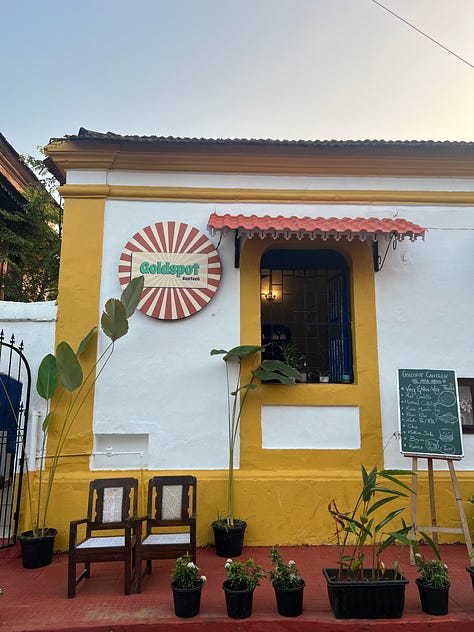
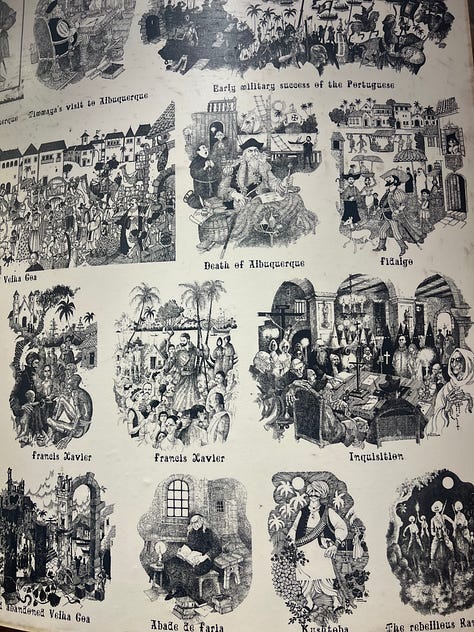
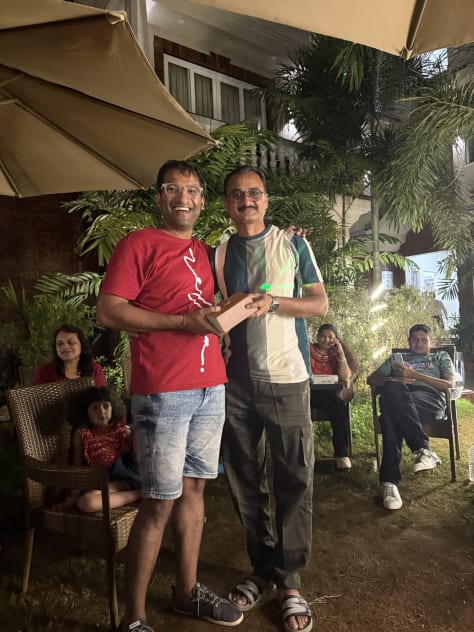
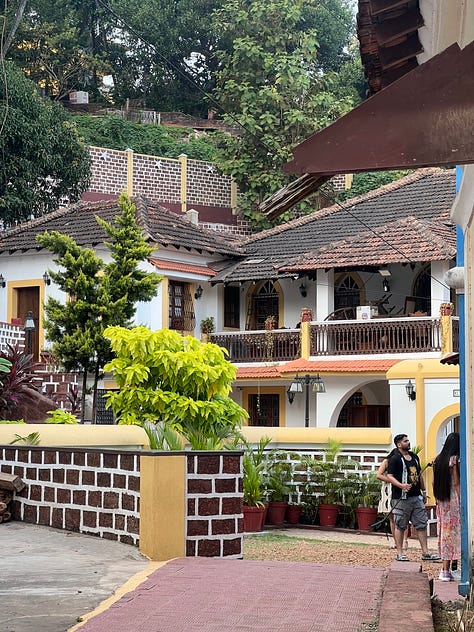
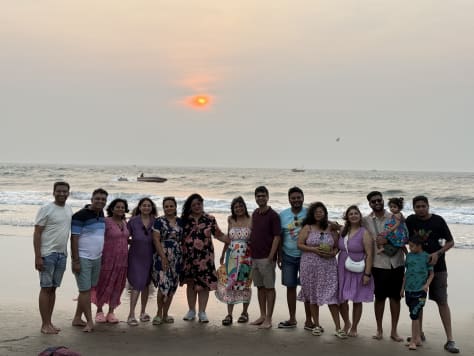
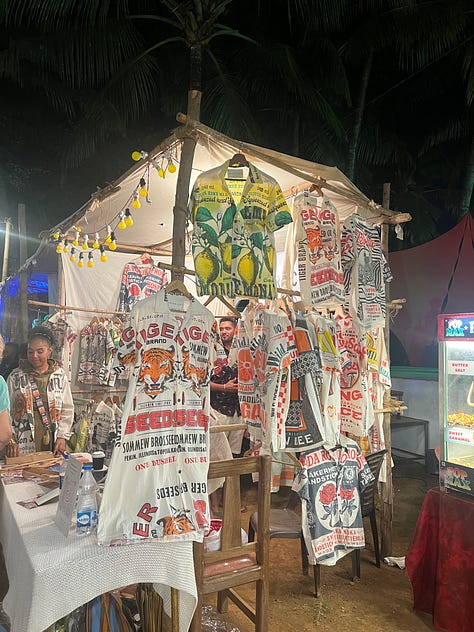

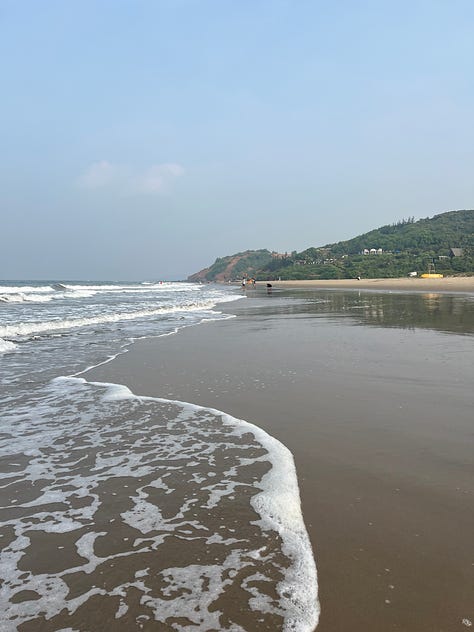
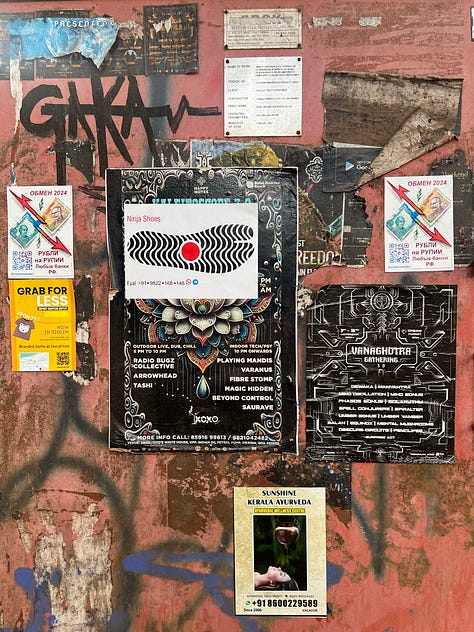
The learning? Plenty. Here’re three key lessons that I learned about a large group trip like this:
One meal, One activity: Aim for just one group meal and one group activity each day. Anything more can become a logistical nightmare.
Flexibility is key: On a trip like this, you’ll learn everyone’s quirks—preferences, moods, time management, spending habits, and more. Plans will inevitably go sideways, so stay adaptable.
Departure day is tough: It’s the lowest-energy day, so plan it thoughtfully. Spend a little extra to ensure it’s smooth and stress-free.
Here’s to improving for next time—whenever that may be! Let’s see how long it takes to pull off another adventure like this.
And now, here it is — the last post for 2024! 🎉
This one’s all about fun and festive vibes. I’ve pieced it together from the little exploration I managed last week (and trust me, it wasn’t much). Here’s a sneak peek:
Hope you’re excited! Let’s end on a high this 2024!
3… 2… 1… Let’s go…
🍬 Thoughts on Nostalgia
Morgan Housel shares a “A Message From the Past” to capture his thoughts on nostalgia.
There’s a Russian saying about nostalgia: “The past is more unpredictable than the future.” It’s so common for people’s memories about a time to become disconnected from how they actually felt at the time.
I have a theory for why this happens: When studying history, you know how the story ends, which makes it impossible to imagine what people were thinking or feeling in the past.
When thinking about our own lives, we don’t remember how we actually felt in the past; We remember how we think we should have felt, given what we know today.
He draws parallel from the world of investing.
So much of what matters in investing – this is true for a lot of things in life – is how you manage the psychology of uncertainty. The problem with looking back with hindsight is that nothing is uncertain. You think no one had anything to worry about, because most of what they were worrying about eventually came to pass.
“You should have been happy and calm, given where things ended up,” you say to your past self. But your past self had no idea where things would end up. Uncertainty dictates nearly everything in the current moment, but looking back we pretend it never existed.
It’s classic Morgan Housel — polarizing as ever. You’ll either love it or find it a bit “meh.” If you’re a fan of his writing, you know what to do—click away!
❎ Just Delete Them
Is this what we’re going to keep doing? Sporadically liking one other's photos until we are elderly women? Meanwhile, the 24/7 opportunity to actually speak sits cold and unused. To state the obvious: this person shouldn’t be in my space. Social media can be a wonderful tool to keep up with people that you once shared great times with. On the flip side, it weirdly compels us to retain every single “connection” for the sake of… what, exactly?
Brilliant post from Caoilainn… Just go for it!
🍹 How to Host Great Dinner Parties
Auren Hoffman shares tips for hosting world class dinner parties. Simple, unique, and a bit counterintuitive. I’m eager to try them soon!
How to keep the audience engaged
the best dinners are one-conversation
all dinners should have one-conversation. any dinner that is not one-conversation is not worth going to and not worth hosting — those dinners are rarely ever good.
A practical tip on invitation
invite in series, not parallel. get the few people to commit so you can use their name to get others. dinners take planning and you need to invite people slowly. the invite should list clearly the location, time, and topic of the dinner.
And the most counterintuitive of them all…
the least important thing is the food
the food is not important. remember those great dorm-room discussions over left-over pizza and keystone light? repeat: food you serve is not important. take-out is totally fine. you can cook too. you can have your super-fancy chef too — whatever — just do something that fits your personality and budget.
Priya Parker’s “The Art of Gathering” is a great book on this topic. I am midway through, and found a lot of interesting insights on how to create meaningful and memorable experiences in any gathering.
💰 World’s Largest Lottery
Christmas traditions differ across the globe, but they often center on food, gifts, and quality time with loved ones. Spain, however, adds a unique twist with a tradition that impacts not just families but entire communities—and even the economy. For over 200 years, the Spanish government has run “El Gordo” (literally, “The Fat One”), a massive Christmas lottery with a prize pool that now runs into billions.
Here’s the catch: the winnings are shared among people who buy parts of the same ticket. Families, friends, coworkers, and even entire neighborhoods often team up to purchase shares, and when luck strikes, it’s a communal celebration. Imagine an entire village winning together—it’s festive cheer multiplied!
Beyond spreading holiday joy, “El Gordo” plays a significant role in Spain’s economy. “The Economics of the World's Largest Lottery” dives into its fascinating impact, from cultural bonding to economic activity.
El Gordo doesn’t just fund development, it also gives a huge boost to the Spanish economy. How’s that, you ask?
Well, one answer is simply something called an income shock. You see, almost everyone participates in El Gordo since it’s a beloved Christmas tradition. And on average, the lottery creates an impact worth about 0.2% of Spain’s GDP. But in provinces where the big prizes land, it can jump to nearly 3% of the local economy!
It’s a simple yet powerful example of economics in action. If only all our economics lessons were built around stories like this—learning would be a lot more fun!
☕ The Villain in our Coffee
Brandon Langston examines the history of chicory in beverages around the world. He attempts to uncover how chicory became the villain in our coffee?
I’ve been sipping coffee blended with chicory for years, but I had no idea what chicory actually was. This snippet offers a quick dive into the plant, its origins, and how it ended up mixed with coffee.
Chicory is a Mediterranean plant with edible leaves, blue flowers, and a thick taproot that, when dried, roasted, and brewed, creates a thick, dark drink with notes of chocolate, nuts, and caramel. For centuries, Europeans consumed this brew for medicinal benefits it didn’t actually have. But this practice familiarised them with its flavours, and when the Islamic world introduced them to coffee, Europeans noted the similarities and began mixing them together. The result was coffee with deeper flavour and colour, and both stood up well to additions of milk and sugar.
What fascinated me most, though, was his coverage of coffee culture in Tamil Brahmin households in Southern India. There’s so much cultural depth and nuance to uncover here.
Caste inevitably played a significant role in this Brahmin-led culture as well. The rimmed tumblers and davaras, symbolic of South Indian coffee, are a material legacy of Brahmin concerns about being ‘polluted’ by members of oppressed castes. Serving coffee to guests became a social obligation of respectability, so balancing hospitality with caste considerations, they designed rimmed tumblers that allowed coffee to be poured into the mouth from a height, avoiding contact with the lips. While coffee is no longer consumed in this manner, its caste heritage still lingers in these iconic cups.
Coffee lovers will love this one. If you’re up for some more, Nick Whitaker’s “How pour-over coffee got good” is my favorite read on the world of coffee this year. I covered it in post #178 , if you’d like to revisit.
With Enthucutlet and now Goya, I’ve got two solid sources for insights on the Indian food scene. 2025 is going to be a great year for reading about food!
🛠️ Restoring Vintage Posters
The world of vintage memorabilia and fan merchandise is endlessly fascinating. Kottke recently highlighted a couple of videos on Restoring Vintage Star Wars Posters — a must-watch for fans and collectors alike!
Here’s how they described it:
Watching these expert restorers mend & refresh a pair of vintage Star Wars posters (neither of which features the logo we’re familiar with today and one of which is signed by the designer) is both fascinating and relaxing. It’s like the posters are having a spa day: bit of a soak, a gentle scrub, some light bodywork, and voila, you’re brand new.
I couldn’t have said it better myself—watch the videos to see these precision artists in action! It’s incredible how businesses like these fuel people’s passions in the most unexpected ways.
Over the years, I’ve come across many similar stories and shared them in earlier posts. If you’re interested in more, check out
🗓️ 52 Snippets from 2024
I came across this curation of 52 Snippets from 2024 and found some of the listings fairly interesting.
1. 75% of containers that come to the US from overseas return to their origin empty. [qz]
7. At the end of the 19th century, Japan transformed from a poor economy to a manufacturing export powerhouse in just fifteen years. How? A massive effort to translate and codify technical information in the Japanese language. The only non-Western country to do so at such scale. [NBER]
24. “I know that the legal profession does a great job of identifying competence and rewarding it financially. Cheap lawyers are expensive.“ [Sasha]
29. PVC pipe markers managed to collude on fixing prices via an industry newsletter. [FTC]
48. The blog has similar curation from the last couple of years as well, in case you are hungry for more.
The Chernobyl disaster may have killed 60 people and poisoned 60,000 but the abandonment of nuclear power that followed was likely responsible for 4 million deaths from air pollution as more coal was used for base power [Klementoninvesting]
(via MR Blog)
✨ Everything else
“Here comes Santa Claus” is a classic “Now I know” find. Dan Lewis tells us the story about why the American military pretends to track Santa Claus. While you’re there, do check out the bonus story about the Canada Post’s Christmas special efforts!
Aman Khanna's Claymen is top of my wishlist for home decor right now. They are quirky, and bring a lot of character to any setting. Check out the colossal coverage to see how this cast of clay personalities meet at the corner of form and function.
And to close this year on a high, let’s hear Tyler Cowen tell us why India’s food Is the best in the world (archive here). I’ll not over-indulge in glory, but soak in his observations on why he thinks so. One example: India’s many religions also help make its cuisine distinctive. Many Hindus are vegetarian, so there is high demand for quality vegetables. Vegetarians in India also seek out dosas, uttapam, and other yummy carbohydrate-heavy entries. Jains do not eat onion or garlic, which induces yet further innovation in flavors. The Christian communities, such as one finds in Kerala, eat a lot of beef. Pork is typically neglected in Indian cuisine, but the former Portuguese territory of Goa has produced some splendid pork dishes.
ICYMI…
Birdwatching in Colombia, Untold tales from Mughal history, Intriguing Story of Rubber stamps are my favorites from last week. Check them and some more here:
That's all for this week, folks!
I hope I've earned the privilege of your time.
If you liked this post, please hit the ❤️ below and leave a comment to tell me more. Forward it to a friend who will find it useful, there is no better way to make this world more curious!




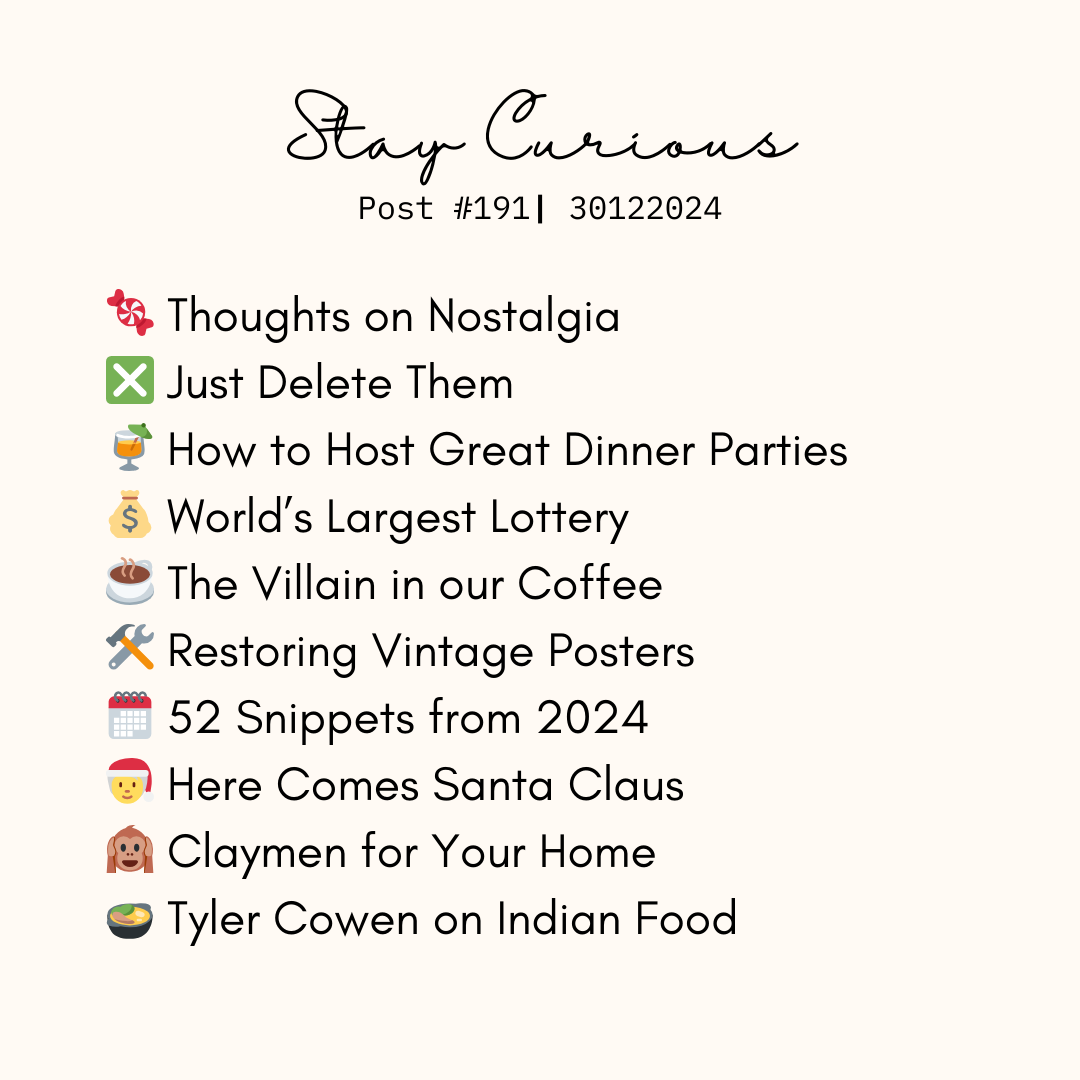

Great one Pritesh!
Loved "Thoughts on nostalgia" and ended up reading the original article! Also, I did not know this about Japan codifying technical information in the Japanese language. And, Restoring Vintage Posters .. wow... how cool.
Thx for keeping us educated and entertained week after week Pritesh!